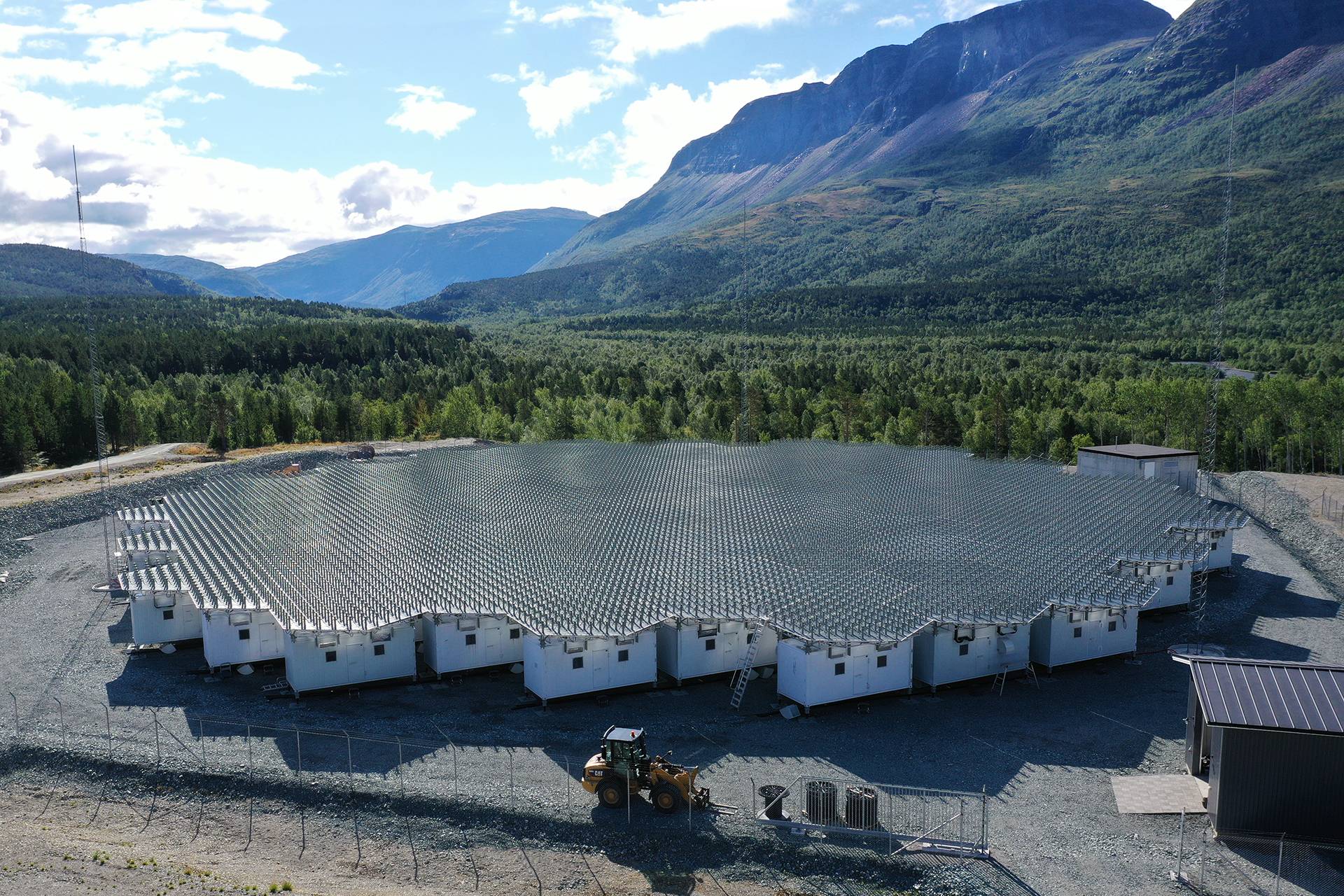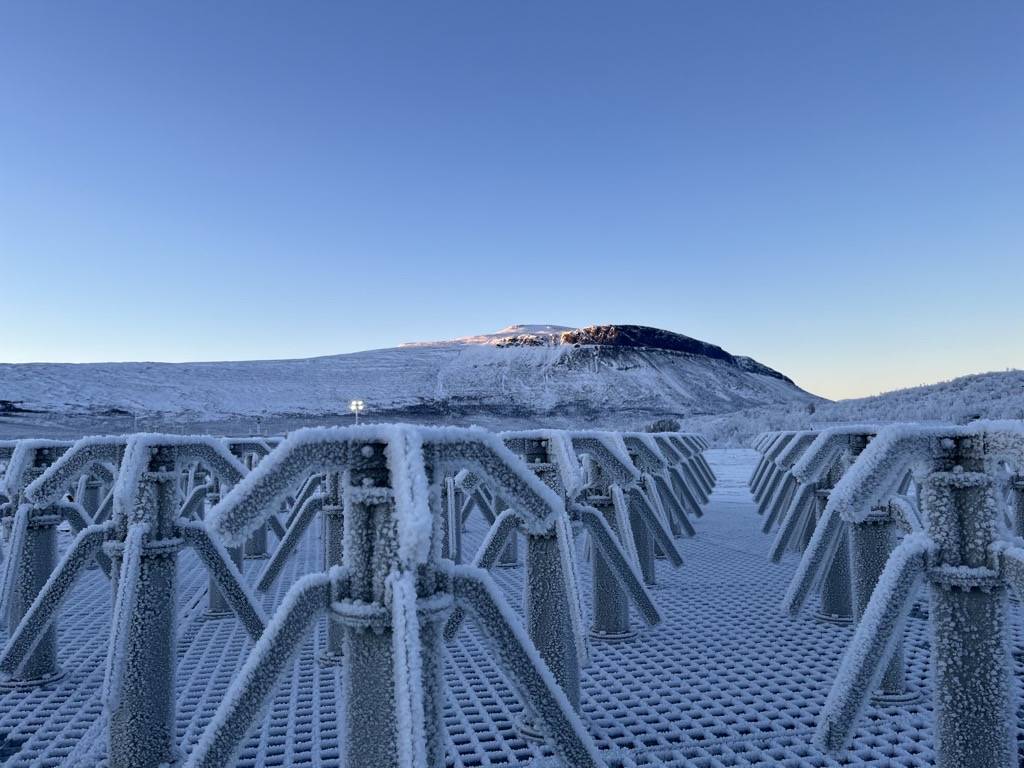meteor-u.tlan
%%%%%%%%%%%%%%%%%%%%
% Written by Assar Westman/Gudmund Wannberg EISCAT HQ
%%%%%%%%%%%%%%%%%%%%
SETTCR 0
AT 1 CHQPULS,STFIR
AT 5.0 BUFLIP
AT 10.0 RXPROT,LOPROT
AT 40.0 BEAMON,F5
%%%%
%%%% - RF TRANSMISSION -
%%%%
%%%%%% Tromso TRX
AT 80 RFON,PHA180 % +++++++
AT 96.8 PHA0 % -
AT 99.2 PHA180 % +
AT 101.6 PHA0 % -
AT 104.0 PHA180 % ++
AT 108.8 PHA0 % -
AT 111.2 PHA180 % +
AT 113.6 PHA0 % -
AT 116.0 PHA180 % +
AT 118.4 PHA0 % ---
AT 125.6 PHA180 % +++
AT 132.8 PHA0 % --
AT 137.6 PHA180 % ++
AT 142.4 PHA0 % -
AT 144.8 PHA180 % ++
AT 149.6 PHA0 % --
AT 154.4 PHA180 % + �
AT 156.8 RFOFF,PHA0
AT 157.0 F12
SETTCR 90
%%%%%% Remote TRX
AT 80 RFON,PHA180 % +++++++
AT 96.8 PHA0 % -
AT 99.2 PHA180 % +
AT 101.6 PHA0 % -
AT 104.0 PHA180 % ++
AT 108.8 PHA0 % -
AT 111.2 PHA180 % +
AT 113.6 PHA0 % -
AT 116.0 PHA180 % +
AT 118.4 PHA0 % ---
AT 125.6 PHA180 % +++
AT 132.8 PHA0 % --
AT 137.6 PHA180 % ++
AT 142.4 PHA0 % -
AT 144.8 PHA180 % ++
AT 149.6 PHA0 % --
AT 154.4 PHA180 % + �
AT 156.8 RFOFF,PHA0,BEAMOFF
AT 356.8 RXPOFF
AT 406.8 LOPOFF
SETTCR 0
%%%% SIGNAL RECEPTION
AT 880.0 CH1,CH2
%% The next long block is a replica of the transmitter code
%% used for test purposes
AT 920 BRX4,B5OFF % +++++++
AT 936.8 BRX5 % -
AT 939.2 BRX5OFF % +
AT 941.6 BRX5 % -
AT 944.0 BRX5OFF % ++
AT 948.8 BRX5 % -
AT 951.2 BRX5OFF % +
AT 953.6 BRX5 % -
AT 956.0 BRX5OFF % +
AT 958.4 BRX5 % ---
AT 965.6 BRX5OFF % +++
AT 972.8 BRX5 % --
AT 977.6 BRX5OFF % ++
AT 982.4 BRX5 % -
AT 984.8 BRX5OFF % ++
AT 989.6 BRX5 % --
AT 994.4 BRX5OFF % + �
AT 996.8 BRX4OFF,BRX5
%% test tranmission block stop here
AT 1192.0 ALLOFF
AT 1197.0 NCOSEL1
AT 1777.0 CH1,CH2
AT 1837.0 ALLOFF
%%%% CALIBRATION ON CHANNEL CH1,CH2
AT 1857.0 CALON
AT 1877.0 CH1,CH2
AT 1937.0 ALLOFF,CALOFF
%%%%%%%%%%%%%%%%%%%%
%%%%%%%%%%%%%%%%%%%%
% Code cut here
.
.
.
.
.
.
SETTCR 0
AT 4329.0 STC
AT 4334.0 REP
meteor.elan
# -*- tcl -*-
#############################################################################
# meteor.elan
#
# EROS3 script for meteor experiment.
# AZs=312.68 ELs=18.95
# AMPs=-21.83 PHAs=90
# Versions: 1.00 Initial version, Feb. 2002
# Version: 2.00 same elan file for all sites Sep. 2002
# Version 2.00 we have 2.4 us sampling on the slow channel which is
# matched to the Baud length
#
# Assar Westman
#
############################################################################
proc meteor { azim elev altitude } {
set Azim $azim ;# These values will go to parameteor block
set Elev $elev ;#
#############
# Definitions
#############
set Azim $azim ;# these values will go to parameteor block
set Elev $elev ;#
set Altitude $altitude ;
set XDIR /kst/exp/ei/meteor2
set FIR /kst/dsp/fir
if {[ISSOD ]|[ISKIR]} {set Expname "meteor-r
set Expid "kst0 meteor-r 2.00
set NCO1 $XDIR/ch1_meteor-r.nco
}
if [ISUHF ] {set Expname "meteor-u
set Expid "kst0 meteor-u 2.00
set Data_Disk "/data2
set NCO1 $XDIR/ch1_meteor-u.nco
}
set Corrfile $XDIR/$Expname.fil
set Iper_us 5000000
set RADAR uhf
set Filter $FIR/b900d9.fir ;# +-900 KHz filter for 0.6 usec sampling
set Filter2 $FIR/b210d36.fir ;# +-210 KHz filter for 2.4 usec sampling
#############
# Actual work
#############
# Stop receiver --
SYNC -10
stopradar -all
stopdata
if [ISUHF] {mount $Data_Disk}
# Load radar controller --
if {[ISSOD ]|[ISKIR]} {
loadradar rec -loopc 1153 -sync 28980 -file $XDIR/meteor-r_uhf.rbin -prog1 0
}
if [ISUHF] {
loadradar rec -loopc 1153 -sync 28980 -file $XDIR/meteor-u_uhf.rbin -prog1 0
loadradar trans -loopc 1153 -sync 28980 -file $XDIR/meteor-u_uhf.tbin -prog1 0
}
# Load filters --
loadfilter $Filter ch1
loadfilter $Filter2 ch2
# Set frequencies --
loadfrequency $NCO1 ch1,ch2
setfrequency ch1 11.6
setfrequency ch2 11.6
# Start radar controllers --
SYNC 2
armradar rec -prog1
if [ISUHF] {armradar trans -prog1}
startradar EXPSTART 5.00
if [ISSOD] { setpolariser 90.0 -21.8 }
if [ISKIR] { setpolariser 330.6 10.7 }
# Poke antenna parameteors to rtcommon ---------------------------------------
pointrheight $Azim $Elev $Altitude
# Start data access ---------------------------------------------------------
SYNC 4
startdata $Corrfile $Expid $Iper_us
# Start recording ------------------------------------------------------------
SYNC 4
disablerecording
# Infinite loop, to be keep the experiment alive ---------------------------
DO -1 {
DISP "[TimeStamp now -noyear] -- $Expname running
SYNC 60
}
};
meteor 125.8 35.3 96.0
meteor-u.fil
%%%%%%
% Written by Assar Westman EISCAT HQ
%%%%%%
nr_stc=1;
% Channel one
channel=1;
% Data layout in channel board memory channel 1:
% 0-519 Signal from F5
% 520-619 Background (F9)
% 620-719 Noise+Background (F9)
% 720-1239 Signal from F9
% 1240-1339 Background (F5)
% 1340-1439 Noise+Background (F5)
%%%%%%%%%%%%%%%%%%%%%%%%%%%%%%%%
% Some remarks on raw data taking!
% The raw data taking are very demanding on the avaible CPU resources,
% especially during the start period of a new integration period. During the
% start period the crate computer which have only one CPU must do data dumping
% to server and also take care of STC interrupts and data computations in
% parallel (multi threaded). The handling of the STC interrupts are very time
% consuming, during the data dumping periods and short IPP STC
% interrupts can be very easily lost. To make as robust experiments as possible
% one should try to have the IPP or the time between STC as long as possible.
% If you have STC to STC shorter than a couple of ms you can get into trouble,
% but one should know that it is no clear rules, you need to do tests with
% your experiment and try different approaches and se what works best.
%%%%%%%%%%%%%%%%%%%%%%%%%%%%%%%%
type=0; % This is a raw data data block
vec_len=520; % We have 520 data points in channel board memory
sub_vec_len=520;% We will dump all of these 520 data points
sub_data_start=0;% Data starts at 0
data_start=0; % These data are the first in channel board memory
nr_loops=1; % We have one complete data cycle in each IPP
nr_rep=1153; % We have 1153 IPP in each integration period
res_mult=1153; % We want to store all of these IPP individual
res_save=1; % We will save these raw data temporarily on the server
% and use them later, look for the res_use=1;
send_raw=1; % Store all IPP for one integration period localy
% on the crate computer before dump it over to the
% server for further data handling
raw_short=1; % Save the result as 16+16 bit real/imag. pairs
% in a separate vector called d_raw in the matlab file
% to save space. Data in d_data are saved as
% 32+32 bit floats
end_type
type=1; % A lag profile calculation
vec_len=520; % We have a total of 520 data points in channel board mem.
sub_vec_len=520;% We will deal with 520 data points
data_start=0; % Thes data starts at position 0 in channel board mem.
max_lag=0; % Calculate a power profile
nr_loops=1; % One data cycle in the IPP
fir_len=128; % We have 128 bit FIR filter
fir_file=b128_inv.txt; % Where to find the taps for this filter
nr_rep=1153; % We will do 1153 IPP for a one integration period
res_mult=1; % Integrate all data into one single power profile
res_use=1; % Use the same raw data as used where we had res_save=1;
send_raw=1; % Do the calulations on the server
end_type
% The next type will be calculated in crate computer
% a calculation every IPP and data will be integrated
% for the whole integration period
type=1; % Power profile
vec_len=100; % 100 data points
data_start=520; % Data start at position 520 in channel board mem.
max_lag=0; % A power profile
end_type
%%%%%%%%%
% The up coming types are in principal exactly the same as the above.
% The differences are where the data can be found (channel baords and data_start)
%%%%%%%%%
type=1;
vec_len=100;
data_start=620;
max_lag=0;
end_type
type=0;
vec_len=520;
sub_vec_len=520;
data_start=720;
nr_loops=1;
nr_rep=1153;
res_mult=1153;
res_save=1;
send_raw=1;
raw_short=1;
end_type
type=1;
vec_len=520;
sub_vec_len=520;
data_start=720;
max_lag=0;
nr_loops=1;
fir_len=128;
fir_file=b128_inv.txt;
nr_loops=1;
nr_rep=1153;
res_mult=1;
res_use=1;
send_raw=1;
end_type
% Code cut here
.
.
.
.
end_chan
channel=2;
type=1;
vec_len=130;
fir_len=32;
fir_file=b32_inv.txt;
data_start=0;
max_lag=0;
end_type
type=1;
vec_len=25;
data_start=130;
max_lag=0;
end_type
type=1;
vec_len=25;
data_start=155;
max_lag=0;
end_type
% Code cute here
.
.
.
.
end_chan




